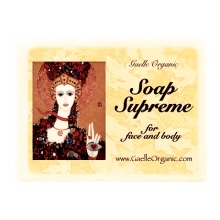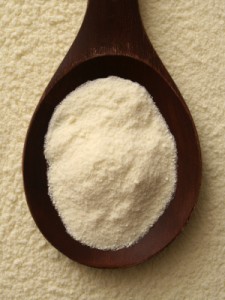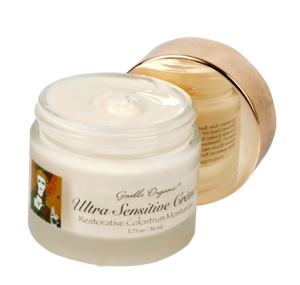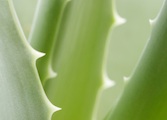Choosing the right cleanser for dry sensitive skin can make all the difference. Many cleansers deplete the skin and leave it vulnerable to eruptions and irritation. Fortunately, there are natural oils that can make soaps that are suitable for even the most sensitive skin. Moisturizing cleansers are a must-have item in caring for extra dry skin.
Palm kernel oil puts the suds in natural soaps and creates a bar that stays solid until used. It can also help to make a truly moisturizing soap.
 Soap making is a simple but delicate process using a combination of lye and fats. When heated and blended together, these two ingredients create a cleansing soap. Lye on its own is caustic and will leave a searing burn on the skin, but through a complex chemical process, the fats (usually in the form of natural oils) neutralize the lye until it is non-irritating. This is an ancient practice that has been keeping us clean for thousands of years.
Soap making is a simple but delicate process using a combination of lye and fats. When heated and blended together, these two ingredients create a cleansing soap. Lye on its own is caustic and will leave a searing burn on the skin, but through a complex chemical process, the fats (usually in the form of natural oils) neutralize the lye until it is non-irritating. This is an ancient practice that has been keeping us clean for thousands of years.
The lye element in soap is a constant, but the oil element is where soap making takes on its true creative allure. Olive oil, pomegranate seed oil, coconut oils and even animal fats like goat’s milk can be blended with scented essential oils to create high quality natural soap.
Soap gets its suds from lauric acids. That is where palm kernel oil comes in. Palm kernel oil contains over 40 % lauric acid. There are plenty of chemically derived sources of lauric acid, but for a natural soap, this seed oil is key.
But that is not the only role palm kernel oil plays in a sudsy bar of soap. As a highly saturated fat, it is solid at room temperature. Even when mixed with lye, the oil retains its solid state. The hardness of the soap depends on the levels of saturated fats it contains. A liquid soap, for example, contains little or no saturated fats. Using palm kernel oil in soap creates a bar that remains solid and lathers well once you get it wet.
There are lots of chemicals that can make a bar of soap sudsy and lots of cheap saturated fats that can make it solid, but these ingredients are at best non-nourishing and at worst overly drying and potentially toxic. To create a high-quality soap, a blend of palm kernel oil with other nourishing seed oils, like sesame and pomegranate, makes for a luxurious bar that is cleansing and moisturizing at the same time.
Palm kernel oil comes from the oil palm rather than the more familiar coconut palm. It is derived from the kernel of the palm fruit seed. Palm oil different, even though it comes from the same tree. It is pressed from the fruit rather than the seed and contains less saturated fats and lauric acids than palm kernel oil.
Soap doesn’t have to be drying and all natural soap doesn’t have to be lather-less. It all depends on the ingredients that go into the bar, and palm kernel oil is one of the best for making a luxurious bar of truly moisturizing soap.
 You can see a list of famous people with rosacea at the post, but you will probably be more interested in Dr. Bailey’s protocol for dealing with rosacea. You’ll find her advice in the post.
You can see a list of famous people with rosacea at the post, but you will probably be more interested in Dr. Bailey’s protocol for dealing with rosacea. You’ll find her advice in the post.





